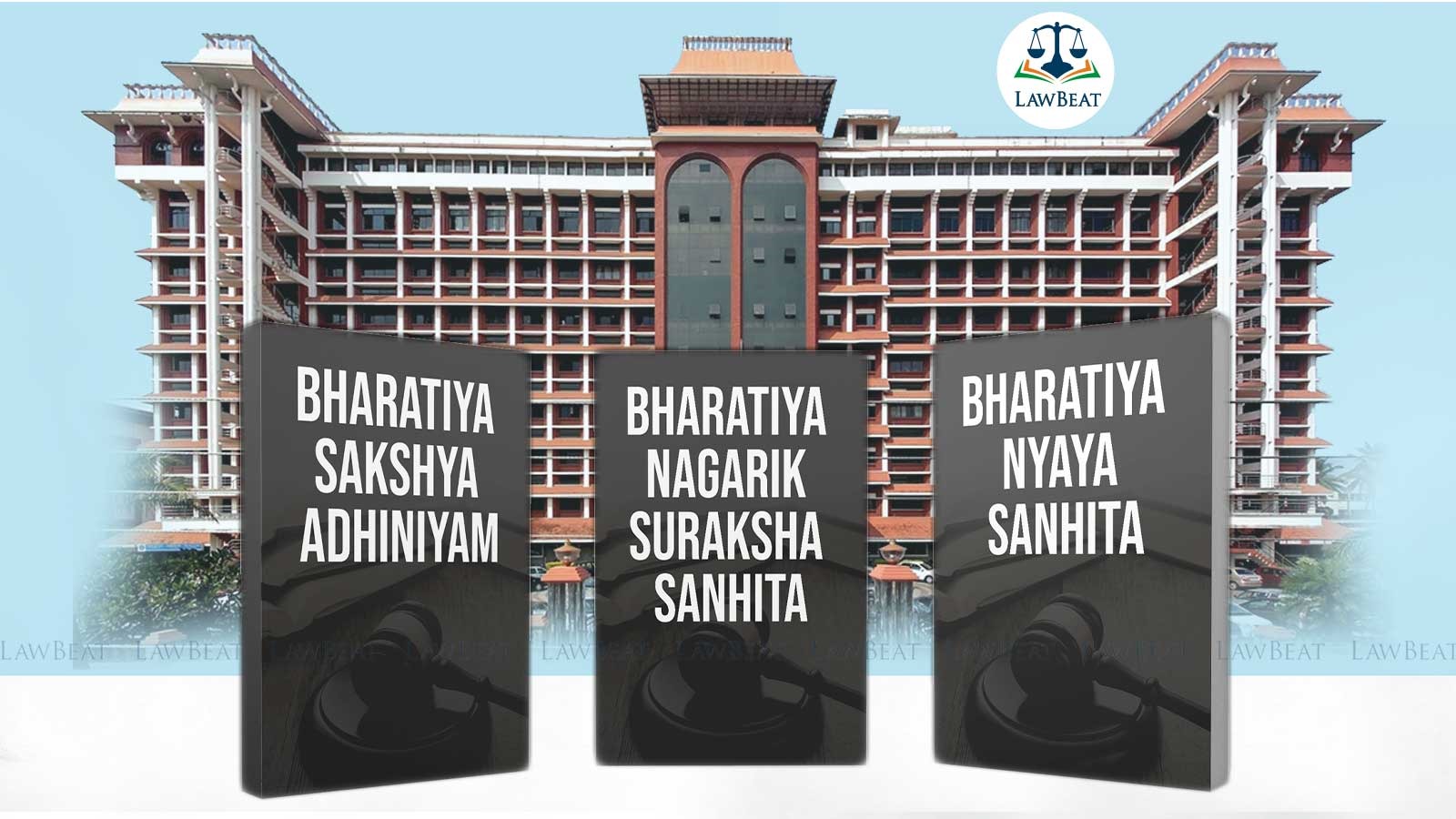No Violation of Fundamental Rights Due to Hindi Names of New Criminal Laws : Kerala HC Dismisses PIL

The court ruled that “nothing prevents Parliament from using Hindi words as the title of an enactment”
The Kerala High Court has dismissed a Public Interest Litigation (PIL) filed by a lawyer challenging the Hindi titles given to the new criminal laws, namely, The Bharatiya Nagarik Suraksha Sanhita, The Bharatiya Nyaya Sanhita, and The Bharathiya Sakshya Adhiniyam, ruling that “there is no fundamental right for a citizen to have title of laws in a language that is familiar to him.”
The Division Bench comprising Acting Chief Justice A Muhamed Mustaque and Justice S Manu, delivered the verdict on a petition which sought a writ of mandamus against the Union of India and its various departments, challenging the use of Hindi nomenclature in the titles of newly enacted laws.
The petitioner contended that the use of Hindi words in these titles violated Article 348(1)(ii) of the Constitution, which mandates that all Acts, Bills, and authoritative texts must be in English. The petitioner sought a declaration that the titles of these laws should be in English and not in Hindi or Sanskrit. Additionally, he requested that the court direct the respondents to decide on his representations regarding this issue.
Opposing the plea, the respondents, represented by the Central Government Counsel, argued that the petition was baseless. It was contended that Article 348 of the Constitution does not prohibit the use of Hindi words in the titles of laws as long as the text of the laws is in English. They further argued that there is no fundamental right to have laws titled in a specific language.
The court highlighted that the Constitution grants Parliament the authority to choose the language of legislation titles, and nothing in law precludes the use of Hindi.
The court observed that the text referred to in Article 348 pertains to the content of the laws and not necessarily the titles. The term "authoritative text" in Article 348 refers to the content and not the nomenclature of the legislation. The court further noted that “The mandate under the Constitution is to prefer English as the authoritative text to ensure uniformity throughout the country, not to denounce Hindi in any form with reference to the title of an enactment.”
The Court further elaborated that under Article 351 of the Constitution, there is a directive for the development of Hindi as a medium of expression for all elements of India’s composite culture, emphasising that that the Constitution does not mandate the exclusive use of English in the titles of laws.
The court concluded that the petitioner had no justiciable right to challenge the titles and that his argument was based on a misinterpretation of the constitutional provisions. The PIL was dismissed as lacking in substance and failing to demonstrate any public interest.
Cause Title: P.V. Jeevesh v Union of India [WP(C) NO. 19240 OF 2024]
